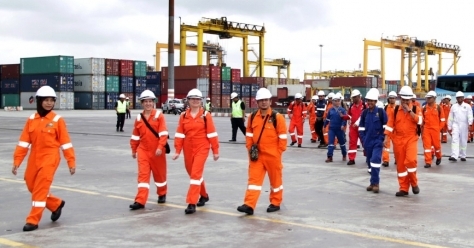IMO endorses new protocols to lift barriers to crew changes
May 11, 2020: International Maritime Organisation (IMO) endorsed new protocols, general measures and procedures designed to ensure that ship crew changes can take place safely during the Covid-19 pandemic.

May 11, 2020: International Maritime Organisation (IMO) endorsed new protocols, general measures and procedures designed to ensure that ship crew changes can take place safely during the Covid-19 pandemic.
The need for ships to change crews and for seafarers to fly home at the end of their periods of service have emerged as two of the biggest challenges facing the shipping industry as a result of the Covid-19 pandemic.
At their heart is a call that, provided shipping companies broadly comply with and adhere to measures applicable to them, governments and their relevant national authorities should, for their part, do everything possible to allow crew changes to happen.
IMO endorses new protocols designed to lift barriers to crew changes: https://t.co/aFi67U7ebL #Crewchange #COVID19 #Seafarers pic.twitter.com/2J4Z3vgONm
— IMO (@IMOHQ) May 7, 2020
The wide-ranging protocols contain recommendations to maritime administrations and other relevant national authorities such as health, customs, immigration, border control, seaport and civil aviation authorities. They address the roles of shipping companies, agents and representatives, including crew agencies and seafarers, and extend to seaports, airports and airlines involved in travel operations for ship crew changes.
Kitack Lim, Secretary-General, IMO said he supports these protocols and urges their implementation. Shipping, and seafarers, are vital to global supply chains. Each month, about 150,000 seafarers need to be changed over, to and from the ships they operate, to ensure international maritime regulations for safety, crew health and welfare, and preventing fatigue are complied with. But, due to COVID-19 restrictions, large numbers of seafarers are having to extend their service onboard ships after many months at sea, unable to be replaced or repatriated after long tours of duty. This is considered unsustainable, both for the safety and wellbeing of seafarers and the safe operation of maritime trade.



